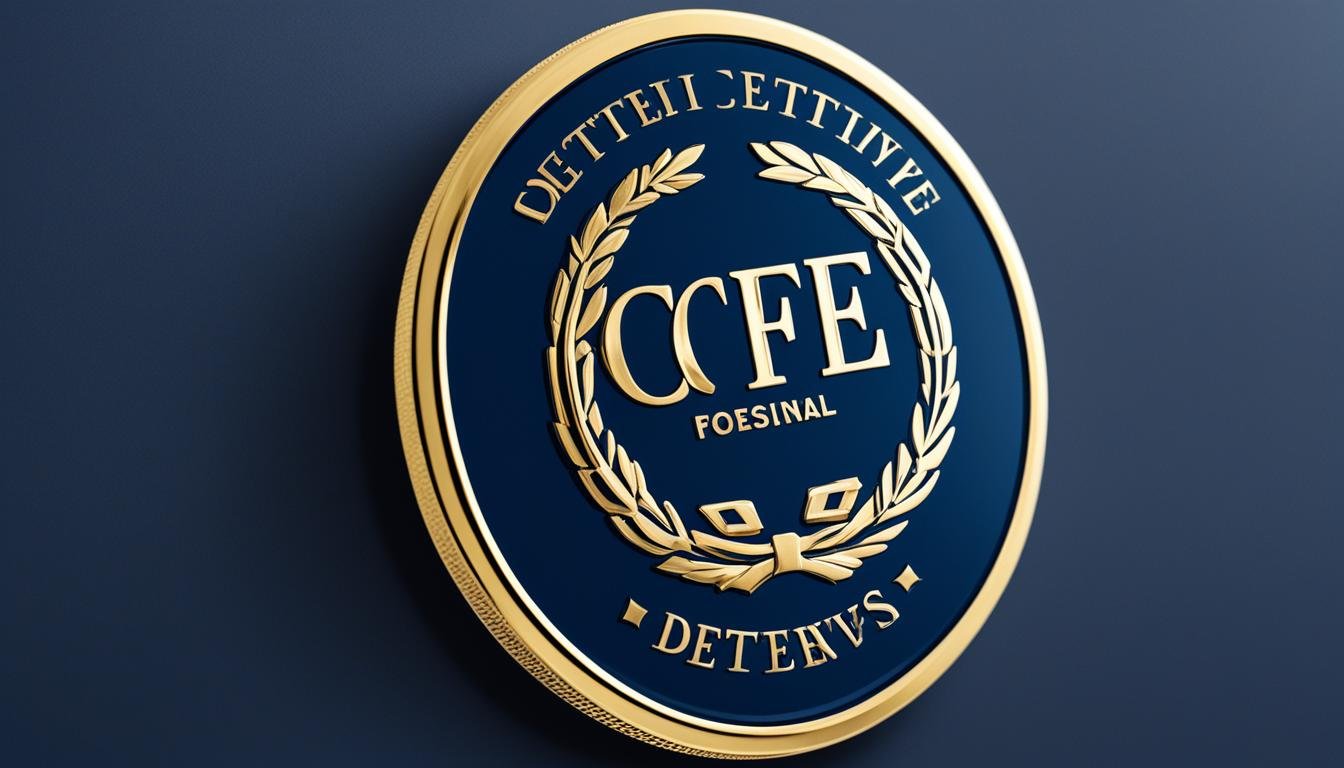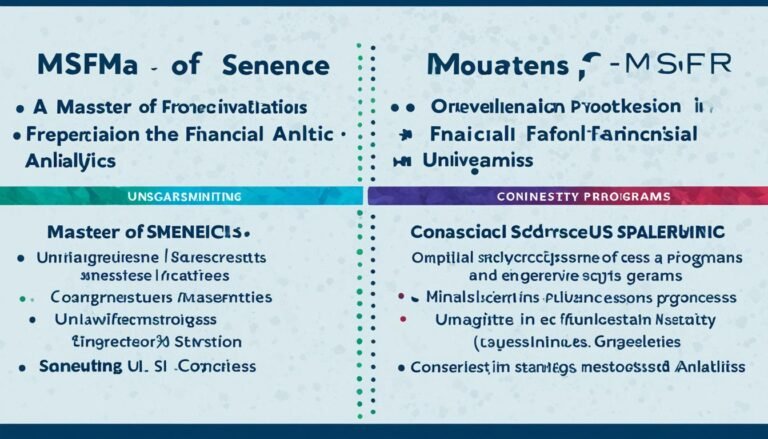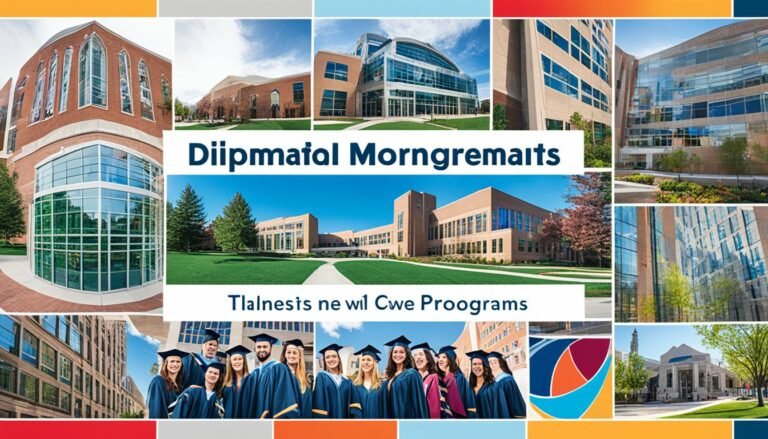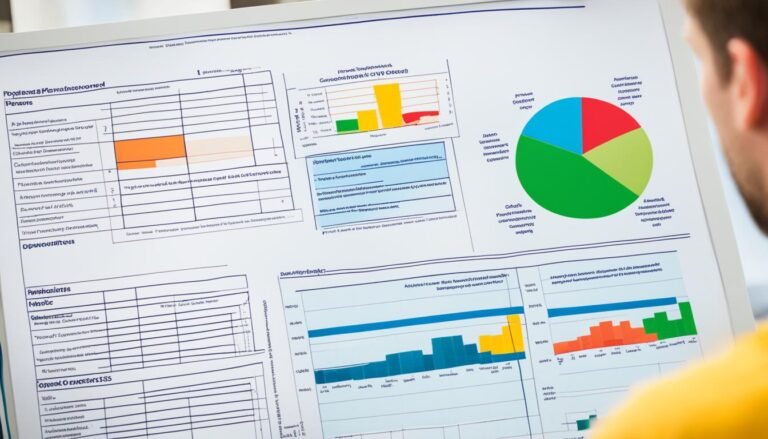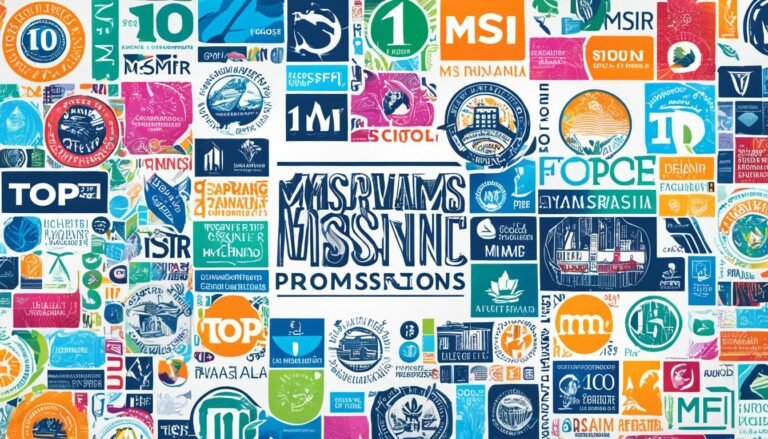Top Certified Fraud Examiner (CFE) Certifications
Did you know that fraudulent activities cost organizations worldwide an estimated $4.5 trillion each year? This shows how important it is for skilled professionals to stop financial fraud.
Looking to boost your career in fraud examination or tackle financial fraud? Getting a CFE certification is a big step. It’s from the Association of Certified Fraud Examiners (ACFE). Employers and pros see it as a mark of knowing how to prevent, find, and fight fraud.
As a Certified Fraud Examiner, you learn a lot. Like how to investigate fraud, do forensic accounting, and understand the legal side of financial fraud. It’s good for auditors, police, lawyers, accountants, and anyone wanting to shield organizations from fraud.
But there’s more than just the CFE. You can also look into certifications like CAMS, CFCS, Cr.FA, CICA, CFF, and CISA. These are also solid choices in fraud examination.
Key Takeaways:
- A CFE certification is a prestigious credential that demonstrates expertise in fraud prevention, detection, and deterrence.
- Other certifications in the field of fraud examination include CAMS, CFCS, Cr.FA, CICA, CFF, and CISA.
- Each certification program has its own prerequisites, examination requirements, and benefits.
- Obtaining a fraud examination certification can enhance career prospects and provide valuable skills in detecting and preventing financial fraud.
- With fraudulent activities costing organizations trillions of dollars annually, the demand for fraud examination professionals is high.
Association of Certified Fraud Examiners (ACFE)
The Association of Certified Fraud Examiners (ACFE) offers the Certified Fraud Examiner (CFE) credential. It’s known worldwide and helps professionals fight fraud. This includes forensic accountants, fraud auditors, investigators, and others.
The ACFE’s CFE programs teach professionals to handle complex money matters. They learn to spot fraud, know the law, and do investigations well. Getting a CFE shows you’re good at stopping and uncovering fraud.
To join the CFE program, you need a bachelor’s degree or a lot of related work experience. You also have to study and pass the CFE exam. This exam covers four areas like fraud prevention and law. Being an ACFE member is a must too.
Benefits of the Certified Fraud Examiner (CFE) Certification
The CFE certification is a big plus for fraud examiners:
- Enhanced expertise: It deepens your knowledge of fraud and boosts your skills. This helps you succeed in your job.
- Credibility and professional recognition: It makes you stand out as someone serious about fraud work and ethics.
- Career advancement: It can help you find better jobs and advance in your career, especially in fighting fraud.
- Networking: Being part of the ACFE connects you with other professionals. This can help you learn more and grow in your career.
Joining the CFE program helps professionals become top fraud fighters. They gain the skills needed to lead in stopping fraud.
| Certification Provider | Certification | Key Specializations |
|---|---|---|
| Association of Certified Fraud Examiners (ACFE) | Certified Fraud Examiner (CFE) | Forensic Accountants Auditors with a fraud focus Fraud investigators Anti-money laundering specialists Compliance officers Law enforcement officers with financial crime duties |
Association of Certified Anti-Money Laundering Specialists (ACAMS)
The Association of Certified Anti-Money Laundering Specialists (ACAMS) is a well-known group. It provides programs for professionals to become Certified Anti-Money Laundering Specialists (CAMS). These programs help those working in anti-money laundering, compliance, and risk management.
Being CAMS certified teaches professionals to fight money laundering and terrorism financing. They learn how to spot suspicious activities and follow laws around the world. This certification covers a wide range of topics to make professionals well-rounded in their skills.
To get CAMS certified, people need to meet some criteria. They must earn enough credits from education or work experience. They also have to fill out an application and pass a tough exam. This process shows they are serious about their work.
Joining ACAMS is important on the way to CAMS certification. It connects members with resources and other professionals in the field. This helps CAMS-certified people keep learning and growing in their careers.
ACAMS’ CAMS certification is highly respected in fighting money laundering. It shows not only skill but also high ethical standards. This is key in the professional world.
Having a CAMS certification opens many doors in the job market. It shows you’re serious about your work and the fight against money laundering. It’s a step towards making the world a safer place.
Association of Certified Financial Crime Specialists (ACFCS)
The Association of Certified Financial Crime Specialists (ACFCS) provides CFCS certification programs. These are for professionals in roles like compliance officers and fraud investigators. The CFCS certification shows expertise in stopping different financial crimes, such as fraud and money laundering.
To earn the CFCS certification, candidates need several years of experience in financial crime. This requirement ensures they have the right skills to solve complex issues. They also must pass an exam that tests their crime prevention knowledge.
After becoming certified, professionals need to keep learning. This helps them stay current with new regulations and best practices.
ACFCS membership is also needed for CFCS certification. Joining this group offers plenty of benefits, including meeting others in the same field and learning at events.
CFCS Certification Benefits:
- Enhanced expertise in detecting and preventing various forms of financial crime
- Recognition as a qualified professional with specialized knowledge in the field
- Increased credibility and marketability among employers and clients
- Opportunities for career advancement and higher earning potential
- Access to a supportive community of professionals in the financial crime field
- Continuing education resources to stay updated with industry trends and regulations
CFCS Certification Exam Overview:
The CFCS exam tests candidates on topics like AML, fraud, and compliance. It makes sure they’re ready to handle the toughest financial crime issues.
- Anti-money laundering (AML)
- Fraud prevention and detection
- Anti-bribery and corruption
- Compliance
- Cybersecurity
Becoming a CFCS can really boost your career. With the right skills and this certification, you can fight financial crime effectively and protect the system.
American College of Forensic Examiners Institute (ACFEI)
The American College of Forensic Examiners Institute (ACFEI) provides a top-notch certification for those wanting to become Certified Forensic Accountants (Cr.FAs). This certification is very important for those working in forensic accounting, fraud examination, and financial analysis within the legal industry.
The Cr.FA certification is ideal for those in different roles. This includes forensic accountants, fraud examiners, and auditors who love digging into financial data. It’s also perfect for accounting managers wanting to specialize and for financial analysts in legal jobs. Even compliance officers with an accounting background can benefit.
This certification focuses on using accounting rules in legal and investigative settings. It helps professionals learn how to do forensic analysis, check financial statements, and spot any lies in them.
To get the Cr.FA certification, you need some prerequisites. This includes having a bachelor’s degree in accounting, finance, or a related area. You also need a bit of work experience in accounting or something similar. Plus, you must finish certain courses in forensic accounting before you can take the Cr.FA exam.
The Cr.FA exam is tough and covers a lot. It checks if you really understand forensic accounting. If you pass, you become a Certified Forensic Accountant (Cr.FA).
Remember, if you get the Cr.FA certification, you’ll need to stay a member of the ACFEI.
Institute for Internal Controls (TheIIC)
The Institute for Internal Controls (TheIIC) is known for its prestigious Certified Internal Controls Auditor (CICA) programs. These programs are perfect for those in internal auditing, compliance, risk management, and more. They show your skill in creating and evaluating internal control systems.
To get the CICA certification, you show you are dedicated to your profession. It ensures you know how to use internal control principles to protect assets and improve corporate rules. In short, it shows you’re an expert in keeping organizations safe and productive.
To enroll in the CICA program, you need to meet specific requirements. You must have a bachelor’s degree or equal education. Also, you need experience in areas like internal controls, auditing, or risk management. Passing the CICA exam shows you understand and can apply what you’ve learned about internal controls.
Keeping your CICA certification means being a member of TheIIC. This helps you stay connected with other professionals. It also offers resources and ongoing education. These are important for keeping up with the latest industry news and skills in internal controls.
Key Benefits of the Certified Internal Controls Auditor (CICA) Certification
Getting the CICA certification comes with many rewards:
- It boosts your chances for better jobs and higher pay.
- It shows you’re credible and serious about your job.
- You gain more knowledge and skills in auditing internal controls.
- You get to meet and work with others in your field.
- It keeps you updated on the newest trends and rules in internal controls.
Certified Internal Controls Auditor (CICA) Certification Programs
| Certification Program | Description |
|---|---|
| Certified Internal Controls Auditor (CICA) | The CICA certification validates expertise in designing, implementing, and assessing internal control systems. |
| Advanced Certified Internal Controls Auditor (ACICA) | The ACICA certification builds upon the foundation of the CICA certification, providing advanced knowledge and skills in internal controls auditing. |
| Master Certified Internal Controls Auditor (MCICA) | The MCICA certification represents the highest level of achievement in the internal controls auditing profession, showcasing mastery of advanced concepts and techniques. |
American Institute of Certified Public Accountants (AICPA)
The AICPA offers the CFF certification for those in finance and accounting. It’s great for CPAs, forensic accountants, and others. It covers areas like bankruptcy, economic damages, and fraud prevention.
To get the CFF certification, you must meet some qualifications. These include having a CPA license and specific experience. You also need to take forensic-related courses, pass an exam, and pay a fee.
This certification boosts your skills in financial investigations. It helps you assess damage, spot frauds, and offer legal advice. Earning the CFF shows you’re an expert in this field and can improve job opportunities.
Benefits of the Certified in Financial Forensics (CFF) Certification:
- It improves your credibility in financial forensics.
- You’ll find more job options and be more appealing to employers.
- Clients will trust your work more in investigations and testimonies.
- You’ll connect with others in the field.
- It provides chances for career growth.
The CFF certification teaches proven methods to handle complex financial data. It helps in finding fraud, calculating damage, and giving legal testimony. Getting CFF shows you’re skilled in this area, boosts your professional status, and opens up new job paths.
| CFF Certification Program Highlights | CFF Exam Coverage |
|---|---|
| AICPA Certification Provider | Fraud Prevention and Deterrence |
| Targeted at CPAs, forensic accountants, fraud examiners, and auditors | Financial Transactions and Fraud Schemes |
| Focus on bankruptcy, economic damages, fraud prevention, litigation support, and valuation | Investigation |
| Prerequisites include holding a CPA license, relevant experience, and completing continuing education | Law |
| Comprehensive examination |
Information Systems Audit and Control Association (ISACA)
The Information Systems Audit and Control Association (ISACA) is well-known for its CISA certification program. This program is for those who work in IT auditing and security, risk analysis, audit management, and compliance. Getting the CISA certification shows you know how to audit, control, and protect information systems.
To get CISA certified, you need specific work experience in auditing, controlling, or securing information systems. You also have to pass the CISA Examination and be a member of ISACA. This certification helps professionals find weak spots, assess risks, and set up strong controls to keep information systems safe.
The need for CISAs is growing fast, thanks to technology’s leap and the focus on securing information. CISAs help organizations in all fields keep their data safe. With the CISA certification, professionals can improve their job options and help make their organization’s cyber security better.
Key Benefits of the CISA Certification:
- Recognition as a globally recognized expert in information systems auditing and control.
- Increased job opportunities and career advancement in the field of IT auditing and cybersecurity.
- Enhanced knowledge and skills to identify and mitigate information system vulnerabilities and risks.
- Credibility among employers, clients, and peers, demonstrating a commitment to professional excellence and ethical conduct.
- Access to a vast network of professionals through ISACA’s global community, providing opportunities for learning, collaboration, and career growth.
Industry Demand for Certified Information Systems Auditors:
“In today’s technology-driven world, organizations face increasing cybersecurity threats and risks. They require skilled professionals like CISAs who can effectively assess and manage these challenges. The demand for Certified Information Systems Auditors continues to grow as companies prioritize information security and rely on competent individuals to protect their valuable data.” – John Smith, IT Security Manager
Getting the CISA certification helps you become a trusted expert in auditing and controlling information systems. CISAs play a big role in stopping data breaches, spotting fraud, making sure everyone follows the rules, and improving how we keep info safe. This is crucial whether you work in the private or public sector.
Conclusion
In conclusion, those aiming for success in fraud examination have many options for certifications. The most recognized is the Certified Fraud Examiner (CFE) from the Association of Certified Fraud Examiners (ACFE). There are also certifications from the Association of Certified Anti-Money Laundering Specialists (ACAMS), the Association of Certified Financial Crime Specialists (ACFCS), and others. These certifications focus on different areas related to fraud.
Each certification requires specific things and tests to prepare professionals. These help in fraud prevention, detection, and deterrence. Getting certified shows you’re skilled, honest, and professional in fighting fraud. It also helps in finding new jobs and making your fraud examination career better.
Choosing the CFE certification from ACFE or others is an important step in becoming a Certified Fraud Examiner. It’s a commitment to always learning about new fraud prevention ways. This makes you a key player in stopping financial crimes.

